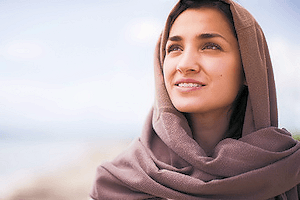Women of the Bible – Deborah
Our Women in the Bible series comes from Dámaris Albuquerque, CEPAD’s Executive Director. This series of biblical studies was originally produced by Radio CEPAD for our radio listeners. Devotionals have since been translated to share with CEPAD supporters and our English-speaking audience.
I want to welcome you to our first segment of the Women in the Bible series. Today we will be studying the story of Deborah. We remember that the Israelites went to the promised land but sinned in the eyes’ of the Lord. They worshipped gods from neighboring peoples, so God brought forth judges that advocated for justice. As long as there was a judge, there was peace in Israel, because there was someone who was in charge of leading Israel back to God. After one judge died, another would take its place, but the Israelites would return to a sinful lifestyle.
Judges 4:1-2, “Again the Israelites did evil in the eyes of the Lord, now that Ehud was dead. So the Lord sold them into the hands of Jabin king of Canaan, who reigned in Hazor. Sisera, the commander of his army, was based in Harosheth Haggoyim.” Whenever the Israelites fell away, they would be overtaken or have a problem. They would cry out to God for help and God would bring them a judge. On this occasion, the Lord brought them Deborah.
“Now Deborah, a prophet, the wife of Lappidoth, was leading Israel at that time” (v. 4). In Hebrew, Deborah’s name means bee. She was a prophetess and judged the Israelites. As a prophetess, she expressed the will of God through divine means, and as a judge, she judged the Israelites to ensure they were living according to God’s commands. Her husband isn’t relevant to this story, just his name appears. It doesn’t say what he did or didn’t do; the main role belongs to Deborah.
Deborah became accustomed to sitting under a certain palm tree. “She held court under the Palm of Deborah between Ramah and Bethel in the hill country of Ephraim, and the Israelites went up to her to have their disputes decided” (v. 5). Imagine this woman, who, even in this early history of Israel, had such a large leadership role. She is the first woman we’ll study that has the role of leader and prophetess.
“She sent for Barak son of Abinoam from Kedesh in Naphtali and said to him, ‘The Lord, the God of Israel, commands you: ‘Go, take with you ten thousand men of Naphtali and Zebulun and lead them up to Mount Tabor. I will lead Sisera, the commander of Jabin’s army, which his chariots and his troops to the Kishon River and give him into your hands'” (v. 6-7). Deborah tells Barak to choose ten thousand men and that the Lord would give him Sisera.
“Barak said to her, ‘If you go with me, I will go; but if you don’t go with me, I won’t go'” (v. 8). Here, we will stop and look at Barak’s response. It proves that Deborah was a well-respected leader, because Barak requested her presence. She was a physical representative of God. It also shows that Barak was weak – he was afraid of going alone.
“‘Certainly I will go with you,’ said Deborah. ‘But because of the course you are taking, the honor will not be yours, for the Lord will deliver Sisera into the hands of a woman.’ So Deborah went with Barak to Kedesh. There Barak summoned Zebulun and Naphtali, and ten thousand men went up under his command. Deborah also went up with him” (v. 9-10). What do we see here of Deborah? Deborah revealed the will of God through prophecy. It says she got up to leave with Barak twice. It wasn’t just about walking to war with him, it was about participation. It wasn’t just a promise made of words, but we see she is a woman of action. She went with him to choose the ten thousand men and also went to ward.
We’re going to skip over the middle of this chapter, because there’s another woman involved, Jael, but we’re focusing on Deborah, so we’ll jump down to verse 23.
“‘Curse Meroz,’ said the angel of the Lord. ‘Curse its people bitterly, because they did not come to help the Lord, to help the Lord against the mighty. Most blessed of women be Jael, the wife of Heber the Kenite, most blessed of tent-dwelling women” (v. 23-24). This completes Deborah’s prophecy of receiving foreign lands into the hands of a woman, Jael. After the victory, Deborah and Barak sang. All of chapter 5, which has 31 verses is dedicated to the song they sang together to give glory to God.
What can we learn from this woman? We can learn that if the Lord gives us a ministry, we have to develop it. For Deborah, it was being a prophetess and judge. She had the responsibility to go ahead and lead the people. If we have a position of leadership, in the church or in our workplaces, we need to always look to God for guidance in order to be the best example we can be for others.
Thank you, brothers and sisters, and may God bless. We hope you join us for another part of our Women in the Bible series.



